Une réforme des enseignements vers plus de lisibilité
Philippe Février (1998)

List of numbers


N°26
Real Estate & Housing
01 January 2006
Editorial
"Our values make our history", read the headline on the brochure
Malakoffiote mailbox to celebrate four decades of "progressive and democratic
progressive and democratic municipal management at the service
population". Passed by a school that proudly displays its address in
this civic-minded commune, while a neighboring national statistical institute
a neighboring national statistical institute prefers to sink into wine to avoid leaving Paris, it is
to live up to these values, and pretend to defend them.
to defend them. One opportunity: the recent referendum on Europe. Not the text
but the campaign, and in particular some of the editorials
editorials, read by former soixante-huitards from a major national
national daily or heard on state radio.
Apparently, then, there are people who think that setting the rules of the game
our lives is too serious and complex to let us vote on it.
complex to let us vote on it. There are people who think that
education, the press and politicians won't be able to do anything about it.
voters are definitely too stupid to understand and vote right on the world
the world they live in. There are people who think
there were 4.8 million xenophobes on April 21st 2002 and 15.5
million on May 29, 2005 - a worrying increase!
To these people, let's remember that when only a "yes" vote is legitimate for a question
question put to the electorate, it's not a "vote", nor a "referendum", it's a "referendum".
referendum", it's a "plebiscite", à la Louis-Napoléon,
aka Napoleon III, to keep it French. Let's not forget that three
republics have died from entrusting themselves to a responsible and
reasonable elite. Then came Waterloo, Sedan and Montoire. Let us remember, finally,
that, under the usual assumptions of bounded rationality
future, the monetarization of feelings and the greed of agents
agents' greed, if the voter's vote is guided by short-sighted self-interest
short-sighted self-interest, then so too are the choices made by our elites.
So let's accept the principle of democracy. All that remains is to organize it
sense of the common good not being acquired, and the previous
and the previous hypotheses are maintained. Question for economists: is it
preferable to let the majority party pay its voters with legislative
legislative, regulatory and fiscal gifts, while avoiding overly unpopular
unpopular reforms in the run-up to elections, or would it be better for the
that the State allocate substantial budgets to political parties so that
so that they themselves can directly subsidize their voters, with
with a say in the voting booth. To your pencils!
Malakoffiote mailbox to celebrate four decades of "progressive and democratic
progressive and democratic municipal management at the service
population". Passed by a school that proudly displays its address in
this civic-minded commune, while a neighboring national statistical institute
a neighboring national statistical institute prefers to sink into wine to avoid leaving Paris, it is
to live up to these values, and pretend to defend them.
to defend them. One opportunity: the recent referendum on Europe. Not the text
but the campaign, and in particular some of the editorials
editorials, read by former soixante-huitards from a major national
national daily or heard on state radio.
Apparently, then, there are people who think that setting the rules of the game
our lives is too serious and complex to let us vote on it.
complex to let us vote on it. There are people who think that
education, the press and politicians won't be able to do anything about it.
voters are definitely too stupid to understand and vote right on the world
the world they live in. There are people who think
there were 4.8 million xenophobes on April 21st 2002 and 15.5
million on May 29, 2005 - a worrying increase!
To these people, let's remember that when only a "yes" vote is legitimate for a question
question put to the electorate, it's not a "vote", nor a "referendum", it's a "referendum".
referendum", it's a "plebiscite", à la Louis-Napoléon,
aka Napoleon III, to keep it French. Let's not forget that three
republics have died from entrusting themselves to a responsible and
reasonable elite. Then came Waterloo, Sedan and Montoire. Let us remember, finally,
that, under the usual assumptions of bounded rationality
future, the monetarization of feelings and the greed of agents
agents' greed, if the voter's vote is guided by short-sighted self-interest
short-sighted self-interest, then so too are the choices made by our elites.
So let's accept the principle of democracy. All that remains is to organize it
sense of the common good not being acquired, and the previous
and the previous hypotheses are maintained. Question for economists: is it
preferable to let the majority party pay its voters with legislative
legislative, regulatory and fiscal gifts, while avoiding overly unpopular
unpopular reforms in the run-up to elections, or would it be better for the
that the State allocate substantial budgets to political parties so that
so that they themselves can directly subsidize their voters, with
with a say in the voting booth. To your pencils!
Summary
Immobilier et logement : regards croisés
Frédéric Gilli (2000)
Les spécificités du marché francilien de l’habitat
Geneviève Prandi (1980)
La promotion immobilière, cette belle inconnue
Olivier Mitterrand (1966)
Crédit bas : Stratégies, opportunités et enjeux
Pierre Doré (1979)
Le « prêt viager hypothécaire » ou l’accession inversée
Claude Taffin (1974)
Les premiers pas de l’informatique à l’INSEE (1ère partie)
Daniel Hoffsaes (1956)
Labouchère est un bon coup
Pierre Morichau (1967)



